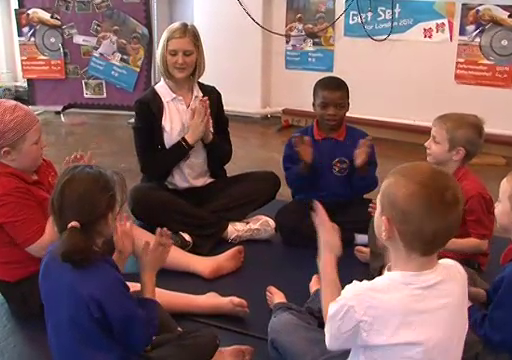4 Creative support in action
In this video, primary school teaching assistants talk about their work with children.
Activity _unit8.4.1 Activity 4 Adult support for children’s learning
You will not hear them use the specific terms ‘creative practice’, ‘practice speculations’, ‘diagnostic thinking’ or ‘possibility thinking’, the terms you have learned about. But as you watch and listen, see if you can apply these concepts to what they say and to their practical work with children.

Transcript: Video 6
[INTERPOSING VOICES]
[CHILDREN LAUGHING AND PLAYING]
[CHUCKLES]
[LAUGHTER]
Discussion
Sam organises playground activities. She recognises and draws on the skills and experiences of older children to be role models for younger children. She encourages fairness, turn-taking and sharing. She gives responsibility to children and stands back to observe their interactions. She takes decisions to change or adapt activities based on what she sees and hears.
Billie supports a child who has Down’s syndrome. She makes moment-to-moment decisions in order to balance close 1-1 support for Zoe with encouraging her to be independent. She manages her close proximity to Zoe by observing her closely and stepping in when necessary.
Vicki says awareness and problem-solving are important in her physical work with children who have a range of individual needs. Her awareness of what is going on all around, and problem-solving to respond to behavioural problems, help Vicki to ensure all children are included and can participate. She says you have to know the children very well.
Suzanne supports a child with a visual impairment. Her observations of Aaron as he works in the classroom help her to support and evaluate his development. She understands the challenges of abstract concepts for Aaron, and uses resources specifically to help him understand
Justine supports children in a literacy group. She says listening, communication and sympathy are important skills to support children’s learning. Justine knows the children very well, and she uses this knowledge to decide when and how to adapt the teacher’s lesson plan to suit their needs.
